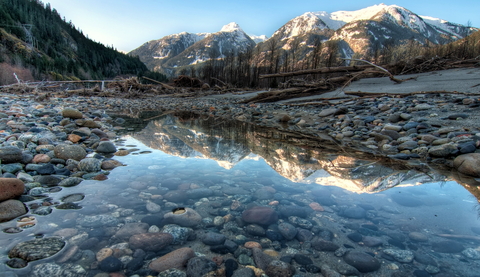Overview
Mountains are iconic landscape features that have captivated our attention for centuries. These landforms have an outsized role in the global hydrologic cycle and act as harbingers of hydroclimatic change. In recent decades, mountains have transformed considerably, undermining the natural functions they provide and societies have come to expect, such as the ability to reliably replenish water supplies at times of peak demand. In this talk, I will discuss how anthropogenic climate change alters the mountainous hydrologic cycles in the midlatitudes of the American Cordillera through my research on orographic precipitation, seasonal snowpack, and the spring freshet and what the implications could be for downstream communities.

Bio
Dr. Alan Rhoades is a Hydroclimate Research Scientist in Berkeley Lab’s Earth and Environmental Sciences Area who uses climate models to assess how mountainous water cycle processes are influenced by climate change, how those changes might influence water resource management, and how the scientific community might better help water managers preemptively adapt to these changes. Alan was born and raised in the Sierra Nevada and received his Ph.D. in Atmospheric Science at the University of California, Davis. Outside of work hours, Alan enjoys hiking, backpacking, bouldering, keeping up with his Weimaraner, Luna, playing/watching sports of all kinds, and nature photography. For more information on Dr. Rhoades' research, please visit www.alanrhoades.com.
